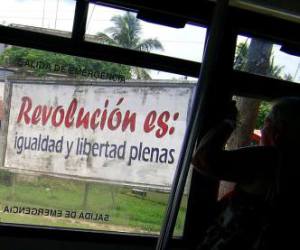The tomb of 21st-century socialism is in Caracas. This is the end of the project (hegemonic in several Latin American countries, for a moment) that Hugo Chávez and Fidel Castro conceived in the late 1900s.

The idea that took form in the premises of the Forum of Sao Paulo, a space that the radical left created to revive the Marxist-Leninist ideology, disappeared among the ruins of the Berlin Wall. The Worker’s Party, headed by Lula da Silva, was the promoter of that initiative that finally paved the way for the emergence and the ephemeral consolidation of a continental entity, achieved with the sale of millions of barrels of oil from Venezuela at subsidized prices. Additionally, strict supervision and ideological assessment from the offices of the Palace of the Revolution in Havana contributed to it.
With Lieutenant Colonel Barinas’ ascension to power in the 1998 elections, it appeared that the plan was moving along nicely: Chávez had won the elections fairly.
The gradual increase in the price of oil in the world market from the first years of the second millennium accelerated the articulation of a model based on dismantling the civil society, populist measures, anti-Americanism at any cost, social control and state monopolization of all areas of power. However, Chávez’s early death, which occurred on March 5th, 2013, marked the passing of an uninterrupted involution.
The progressive descent in the prices of the black gold, a phenomenon that became stronger in 2014, was another factor that contributed to the fatigue of a process, which was sold to the public opinion as revolutionary, but was, at its core, no more than an unscrupulous dictatorship, like all those who have plagued humanity under the proclamation of social justice, peace, and prosperity.
The government represented by Nicolás Maduro, the heir that Chávez chose before he died, is reliable proof of his intent to implant a fascist model in Venezuela. The physical disappearance of Fidel Castro in Cuba, on the other hand, is an element to take into account so as to understand the upheaval of a model that looks to have its days numbered.
In Venezuela, Castroism plays its last card and doesn’t have time to tie the score. The defeat materializes with the increased international repudiation of police repression, which has already racked up dozens of civilian deaths. From that primordial enthusiasm, there are only shadows and dark clouds left, because many of the main facilitators of this project either no longer hold power or have fallen from grace.
The list of losers also highlights the names of some former presidents: Rafael Correa, Cristina Kirchner, Lula da Silva and Dilma Rousseff; the last three under suspicion of corruption with more than just a scandal thereupon.
Today, popular protests in Venezuela threaten to continue despite the manifestation of the brutality of the repressors. This indicates that the number of fatalities will sadly increase in the coming days.
Maduro, with his inner circle and his patrons from Havana, pledged to proclaim victory in the war they have already lost, even if they continue their bravado.
If things remain the way they are, socialism of the 21st century is at the point of no return. I will go ahead and say it was a disaster, as if observing the ashes that will soon cease to be a metaphor.

Leave a comment